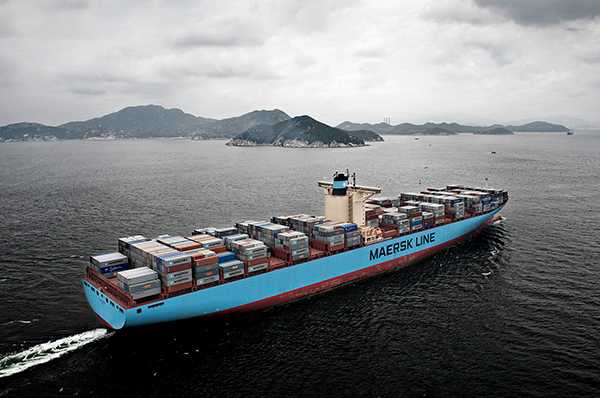
Shipping tackles climate change
Ocean shipping moves 80% of global trade. Without it the modern world would not be able to exchange goods at a level that creates economic opportunities for a growing population. While ocean shipping is by far the most environmentally efficient way of moving goods over long distances, the industry must step up its efforts to reduce the environmental impact.
In order to combat climate change, as outlined in the Paris Agreement, A.P. Moller - Maersk has set an ambitious target of reducing CO2 emissions by 60% per container moved, by 2020 (2007 baseline). While the target may prove difficult to meet within the timeframe set, very substantial progress has been made with 43% reached so far. Several initiatives have been taken to materially reduce CO2 emissions.
More than 150 of the A.P. Moller - Maersk vessels are going through a retrofitting programme with technological improvements which include new optimised bulbous bow and propellers and derating of engines. The company has moreover invested in new vessels that set new standards on CO2 and energy efficiency. These vessels come with optimised hull design, electronically controlled engines, waste heat recovery systems, and new designs for lower speed operation.

The A.P. Moller - Maersk Connected Vessels programme enhances the ability to monitor and guide planning and operational performance of the vessels, based on digital performance data.

This is expected to reduce the fuel consumption by 0.5% every year over five years, corresponding to a reduction of approximately 847,000 tonnes of CO2 eq.
As stipulated in the IMO agreement, ocean shipping needs to reduce its absolute emissions by at least 50% by 2050 (baseline 2008) and for that new zero carbon fuels need to be introduced. Such fuels are not market ready yet, and substantial investment into R&D will be needed by the industry. In A.P. Moller - Maersk we are committed to be a leading part in that effort on the coming years.


